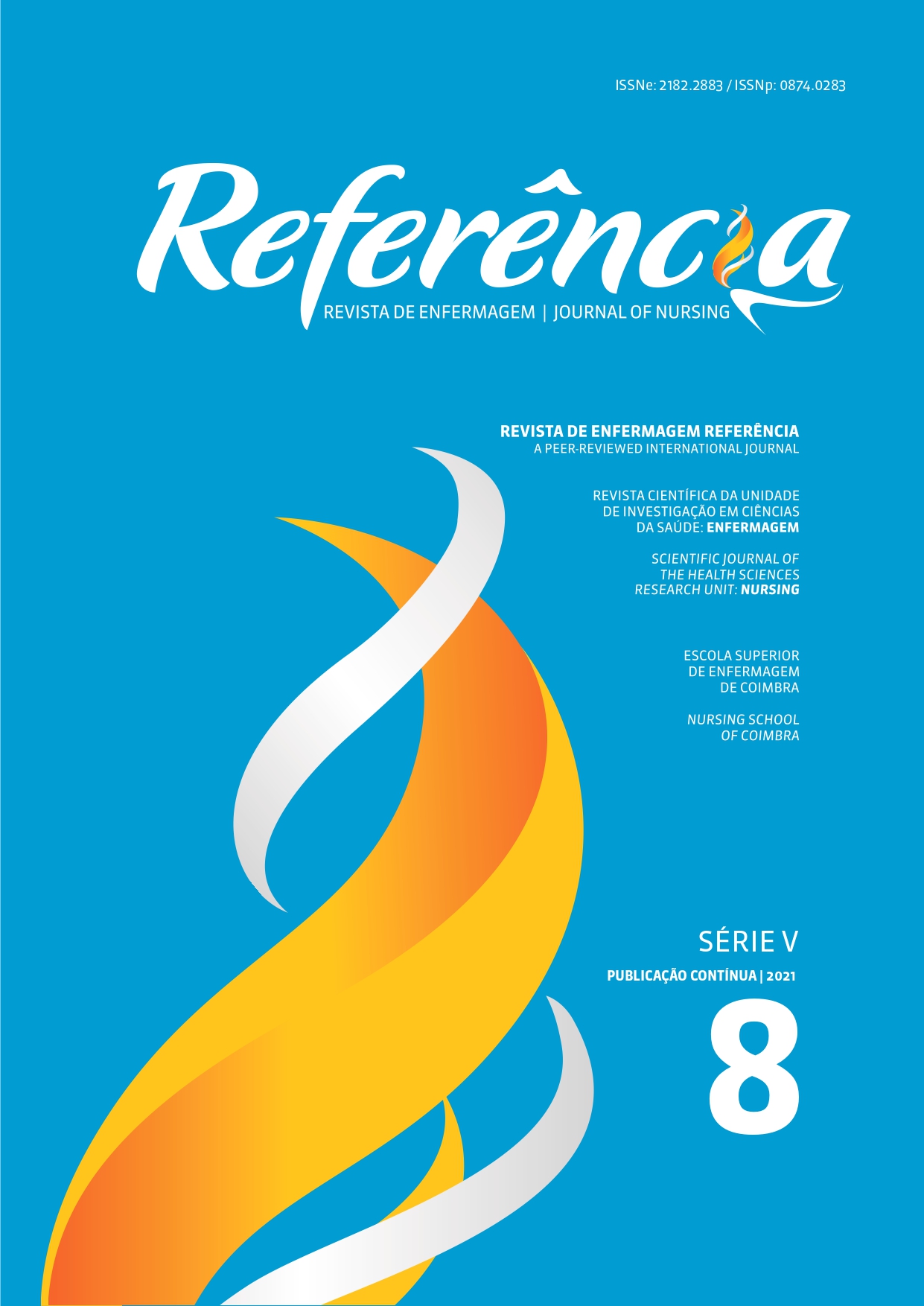Making a Difference 3 – an individual cognitive stimulation program for older people: Appropriateness and feasibility
DOI:
https://doi.org/10.12707/RV20161Keywords:
cognitive stimulation, non-pharmacological intervention, cognitive decline, dementia, neurocognitive disorder, caregiversAbstract
Background: The delivery of individual cognitive stimulation by caregivers in a home-based setting is an innovative intervention. An example of this type of intervention is the Making a Difference 3 (MD3) cognitive stimulation program.
Objective: To explore the appropriateness and feasibility of the MD3 program for the Portuguese population.
Methodology: This study was developed in two phases. In Phase 1, exploratory interviews were conducted with academics, healthcare professionals, and caregivers to identify the receptivity to this type of intervention. In Phase 2, a panel of experts and focus groups with caregivers were conducted to explore their perceptions about the Portuguese version of the MD3 program.
Results: Phase 1 was the driving force behind the study. Participants considered this type of intervention very useful and versatile. Phase 2 allowed identifying the level of appropriateness and feasibility of the intervention that was translated and adapted to the Portuguese population.
Conclusion: The MD3 program can be an excellent tool in caring for older adults with cognitive impairment living at home.
Downloads
References
Aguirre, E., Spector, A., & Orrell, M. (2014). Guidelines for adap- ting cognitive stimulation therapy to other cultures. Clinical Interventions in Aging, 9, 1003–1007. https://doi.org/10.2147/CIA.S61849
American Psychiatric Association. (2013). Diagnostic and statistical manual of mental disorders: DSM5 (5th ed.). APA.
Craig, P., Dieppe, P., Macintyre, S., Michie, S., Nazareth, I., & Pet- ticrew, M. (2008). Developing and evaluating complex interven- tions: The new medical research council guidance. BMJ, 337, a1655. https://doi.org/10.1136/bmj.a1655
Fonseca, A. (Ed.). (2018). Boas práticas de ageing in place: Divulgar para valorizar: Guia de boas práticas. Fundação Calouste Gulbenkian/ Faculdade de Educação e Psicologia da Universidade Católica Portuguesa. https://gulbenkian.pt/publication/boas-praticas-de-ageing-in-place-divulgar-para-valorizar/
Despacho nº 5988/2018 do Gabinete do Secretário de Estado Adjunto e da Saúde. (2018). Diário da República: II série, nº 116. https://dre.pt/home/-/dre/115533450/details/maximized
Keeney, S., Hasson, F., & Mckenna, H. (2010). Applications of the delphi in nursing and health research. In S. Keeney, F. Hasson & H. Mckenna (Eds.),The delphi technique in nursing and health research (p. 210). https://doi.org/10.1002/9781444392029.ch3
Livingston, G., Sommerlad, A., Orgeta, V., Costafreda, S. G., Huntley, J., Ames, D., Ballard, C.,Banerjee, S., Burns, A.,Cohen-Mans- field, J., Cooper, C., Fox, N., NGitlin, L., Howard, R., CKales, H., BLarson, E., Ritchie. K., Rockwood, K., … Mukadam, N. (2017). Dementia prevention, intervention, and care. The Lancet, 390(10113), 2673–2734. https://doi.org/10.1016/S0140- 6736(17)31363-6
Orgeta, V., Leung, P., Yates, L., Kang, S., Hoare, Z., Henderson, C., Whitaker, C., Burns, A., Knapp, M., Leroi, I., Moniz-Cook, E. D., Pearson, S., Simpson, S., Spector, A., Roberts, S., Russell, I. T., Waal, H., Woods, R.T., & Orrell, M. (2015). Individual cognitive stimulation therapy for dementia: A clinical effectiveness and cost-effectiveness pragmatic, multicentre, randomised controlled trial. Health Technology Assessment, 19(64), 1–108. https://doi.org/10.3310/hta19640
Orrell, M., Yates, L., Leung, P., Kang, S., Hoare, Z., Whitaker, C., Burns, A., Knapp, M., Leroi, I., Moniz-Cook, E., Pearson, S., Simpson, S., Spector, A., Roberts, S., Russell, I., Waal, H., Woods, R. T., & Orgeta, V. (2017). The impact of individual cognitive stimulation therapy on cogni- tion , quality of life , caregiver health , and family relationships in dementia: A randomised controlled trial. PLoS Medicine, 14(3), 1–22. https://doi.org/10.1371/journal.pmed.1002269
Puchta, C., & Potter, J. (2004). Focus group practice. SAGE. https://doi.org/10.4135/9781849209168
Silva, R. (2019). Estimulação cognitiva em pessoas idosas: Inter- venção individual na fragilidade [Tese de doutoramento, Universidade Católica Portuguesa]. Repositório Institucional da Universidade Católica Portuguesa. https://repositorio.ucp.pt/bitstream/10400.14/31534/1/Estimulacao_Cognitiva_Individual_em_Pessoas_Idosas_RosaSilva_UCP.pdf
Silva, R., Bobrowicz-campos, E., Cardoso, D., Costa, P., Couto, F., Camarneiro, A. P., Abrunheiro, S., Almeida, M., & Apóstolo, J. (2020). Effects of caregiver-provided individual cognitive interven- tions on cognition, social functioning and quality of life in older adults with major neurocognitive disorders: A systematic review. JBI Evidence Synthesis, 18(4), 743–806. https://doi.org/10.11124/JBISRIR-D-19-00125
Yates, L., Orgeta, V., Leung, P., Spector, A., & Orrell, M. (2016). Field-testing phase of the development of individual cognitive stimulation therapy for dementia. BMC Health Services Research, 16(1), 233. https://doi.org/10.1186/s12913-016-1499-y
Yates, L., Orrel, M., Phoung, L., Spector, O., Woods, B., & Orgeta, V. (2015). Making a difference 3: Individual cognitive stimulation therapy: A manual for carers. Hawker.
Yates, L., Orrell, M., Spector, A., & Orgeta, V. (2015). Service users’ involvement in the development of individual cognitive stimula- tion therapy for dementia: A qualitative study. BMC Geriatrics, 15(1), 4. https://doi.org/10.1186/s12877-015-0004-5
Yates, L. (2016). The development and evaluation of individual cognitive stimulation therapy for people with dementia. University College London.
Yates, L., Orrell, M., Leung, P., Spector, A., Woods, B., & Orgeta, V. (2019). Fazer a diferença 3: Terapia de estimulação cognitiva individual: Um manual para cuidadores (Vol. 3). Hawker Culvert House.






















